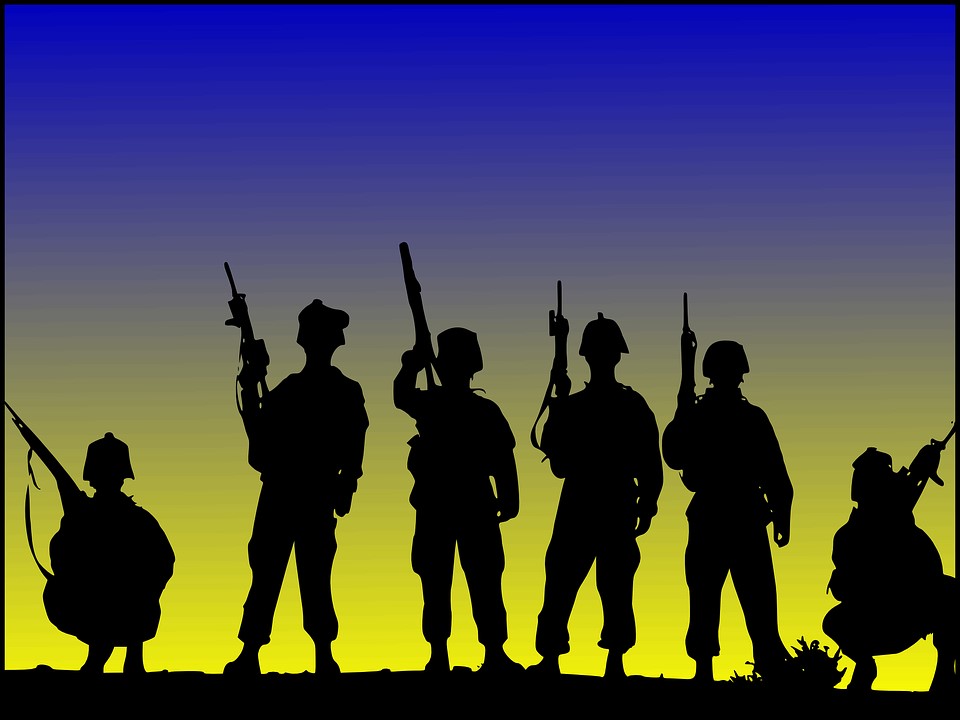 Within
the United States Army, squad leadership
plays a critical role in building
cohesive and efficient units. A squad
leader serves as the backbone of the
team, responsible for guiding,
motivating, and maximizing the potential
of every soldier under their command.
This article explores the essential
qualities, responsibilities, and
challenges of squad leadership,
highlighting its significance in
achieving mission success and fostering a
culture of excellence. Within
the United States Army, squad leadership
plays a critical role in building
cohesive and efficient units. A squad
leader serves as the backbone of the
team, responsible for guiding,
motivating, and maximizing the potential
of every soldier under their command.
This article explores the essential
qualities, responsibilities, and
challenges of squad leadership,
highlighting its significance in
achieving mission success and fostering a
culture of excellence.Qualities of
an Effective Squad Leader:
Successful squad leaders possess a
range of qualities that enable them to
lead by example and inspire their teams.
They exhibit unwavering integrity, sound
judgment, and a strong work ethic. They
are proactive communicators, adept
problem solvers, and empathetic
listeners. By displaying competence,
confidence, and a genuine concern for the
well-being of their soldiers, effective
leaders build trust and earn respect
within their squads.
Responsibilities and Duties:
Squad leaders shoulder numerous
responsibilities to ensure the smooth
functioning and readiness of their units.
They are responsible for training their
soldiers in essential tasks, ensuring
proficiency in individual and collective
skills. Squad leaders also supervise and
mentor their subordinates, providing
guidance, counseling, and support to
promote personal growth and professional
development. Additionally, they serve as
the primary link between the soldiers and
higher-ranking officers, relaying orders,
coordinating missions, and maintaining
discipline within the squad.
Team Building and Cohesion:
Creating a cohesive and
high-performing squad is a crucial
objective for a squad leader. They foster
team spirit, encourage camaraderie, and
promote a positive and inclusive work
environment. Through effective
communication, team-building exercises,
and shared experiences, squad leaders
build trust and camaraderie among their
soldiers. By valuing diversity,
leveraging individual strengths, and
encouraging collaboration, they create a
unified and resilient team capable of
overcoming challenges and accomplishing
mission objectives.
Leading by Example:
Squad leaders serve as role models for
their soldiers, exemplifying the Army
values and standards of conduct. They
lead from the front, displaying physical
and mental toughness, resilience, and
adaptability. By demonstrating a strong
work ethic, dedication, and commitment to
the mission, they inspire their soldiers
to emulate their behavior and strive for
excellence. Leading by example fosters a
culture of accountability,
professionalism, and pride within the
squad.
Challenges and Adaptability:
Squad leaders face a multitude of
challenges, ranging from tactical
decisions on the battlefield to managing
personnel issues within the unit. They
must be adaptable and resourceful,
capable of making quick and effective
decisions in high-pressure situations.
The ability to remain calm, think
critically, and communicate clearly under
stress is essential. Furthermore, squad
leaders must continuously update their
knowledge and skills to stay abreast of
evolving tactics, techniques, and
technologies.
Conclusion:
Squad leadership is a vital component
of the United States Army's success,
ensuring that small units are cohesive,
disciplined, and mission-focused.
Effective squad leaders possess a unique
blend of skills, qualities, and
experiences that enable them to inspire
and guide their soldiers to achieve their
full potential. Through their dedication,
mentorship, and commitment to excellence,
squad leaders create resilient teams
capable of overcoming challenges and
accomplishing the Army's mission with
honor and distinction. |